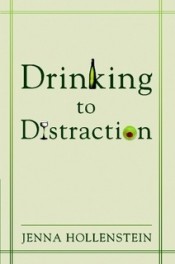A few days later, I was visiting Susan Piver in her new home. She had graciously agreed to introduce me to the Shamatha meditation she describes in The Wisdom of a Broken Heart. First we sat and talked about why now was the right time to start meditating.
Almost as soon as I opened my mouth, I was crying on her couch as her slim, gray cat gingerly stepped across my knees. I told Susan about my decision to stop drinking (at the time it was almost three years ago) and how that had been a way I filled the empty spaces in my life, empty spaces I still found very troubling. I told her how I’d fallen in love with a man I dated several years ago and had recently gotten back together with and that I realized it was the first time since I’d stopped drinking that I had felt such love for someone. I told her how I felt as if I was on the precipice of something potentially great and at the same time extremely dangerous, like jumping off a cliff with a parachute that hadn’t been quality tested.
It’s not surprising that you feel this way, she said, you’ve opened your heart to someone and that’s good. You want to learn how to remain open and have stability.
Exactly! I knew I didn’t want to close my heart; that’s no way to live and certainly no way to be in a relationship. I just didn’t want to walk around feeling like my heart might explode inside my chest at any moment.
We moved into to Susan’s office where she also keeps her meditation shrine containing photos of the Dalia Lama, her own meditation instructor, and some prized objects. She lit two oil lamps and we took our seats facing the shrine. In a quiet, steady voice, Susan provided instruction on body, breath, and mind, how the back is strong while the front is soft, how the breath is drawn in and sent out through the nose, and how the mind touches lightly on the inevitable thoughts that pass through but releases them and gently returns the awareness to the breath.
My eyes fell lightly on a spot just inside the border of the silk cloth lining the shrine and I sent out and drew in my breath like waves rushing the shore and then receding. In those ten minutes, I wasn’t thinking about whether I should be anywhere else. I wasn’t thinking of work or email or Facebook or to-do lists. I’m sure thoughts came and went – I can’t recall any specifics – but what I felt was a sense of calm that had become quite unfamiliar. I was hooked.
Before I left, Susan’s one piece of advice to me regarding my daily practice was to just relax – not zone out or will my mind to be blank but to be however I am, whether sad or anxious or happy or boring.
The next day I sat alone on my bedroom floor, pillows sticking out from every which way to support my butt and ever-resistant knees. I programmed my newly downloaded iPhone meditation app for 10 minutes and set about meditating.
It was different that time. Rather than feeling like the ebb and flow of the tide, my breath felt choppy, like the water in a rip tide. And thoughts swirled around my head like circling birds after a Looney Tunes character has taken a fall. It took almost the full time before I was able to calm them down. But I sat through my practice and every time my mind wandered, I tried to begin again.
During the last 6 months, I’ve experimented with meditating for 5 minutes a day or up to 30, with doing it in the evening and first thing in the morning, and with practicing alone as well as with a group. It hasn’t always been easy or fun or clearly beneficial. Like any practice there are good and bad days but all of them seem necessary.
To the cushion I go…
Look for my interview with Susan Piver here next week!


I’ve been considering meditation for some time now as well. I can somewhat relate to your story, as I went through a very difficult situation the past 2 years, and at one point found myself drinking to cope. I stopped, and am now struggling to find my “center”, to find something to do to help my problems. I applaud you for your strength!
Thank you, Darby, for sharing this. I have found meditation to be one of those things that’s worth the extra effort – sort of like flossing or taking a multivitamin – that I was only able to put in after years of contemplation. While the benefits aren’t always immediately clear, the long-term payoff is there. Maybe it has to do with being in a certain stage in life (for me the mid-30s) or having tried various ways of coping – whether they be drinking or some other distraction – and finding they don’t really get at the heart of things. I guess we all come to things in our own time – not a moment earlier or later, right? Thank you again and best wishes.